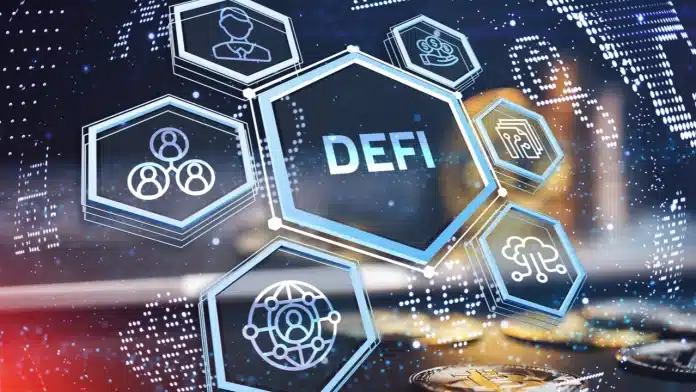
Staking, like many other concepts in cryptocurrency, can be difficult for some people to understand, while being simple for others. This all depends on how much knowledge you now possess and the amount of information you would like to learn. Staking, however, typically entails receiving additional benefits or profits merely for holding a certain cryptocurrency asset, therefore it is beneficial to traders and investors. If you want to know more about bitcoin mining, then you can visit Bitcoin Trader
In the practice of “defi staking,” a person stakes his cryptocurrency holdings to benefit while serving as a transaction validator. Defi staking is one of the topics that are now most frequently discussed in the Defi market. Staking a cryptocurrency allows its owner to earn a passive income.
Defi Staking: What Is It?
Staking and decentralized finance are combined effectively in defi staking. It prioritizes staking cryptocurrency assets as a consequence in order to become a validator. Users also receive rewards for staking crypto assets in the form of crypto assets equal to the amount they have staked. Tokens that are fungible or non-fungible are placed inside smart contracts when crypto assets are staked. Additionally, it refers to any DeFi actions that call for the interim adherence of crypto assets on a more general basis.
Various Type of Decentralised finance (DeFi) Staking
Considering the fact that we have already discussed defi staking, now we will talk about the varied types of staking. To begin, let us define staking as follows:
Staking
Staking, as defined, is the act of users locking a certain quantity of digital assets to serve as validators in a PoS (Proof-of-Stake) blockchain technology. Proof of Stake (PoS) also depends on validators who have a stake in the particular chain. When validators risk losing part or all of their interest, they are more inclined to do their duties properly. PoW (Proof of Work) approaches, on the other hand, necessitate the use of computing power to authenticate transactions, which costs energy and increases carbon emissions as well. Staking rewards incentivize block producers as well as validators even more.
Yield Farming
The emergence of yield farming revealed the actual potential of decentralized finance, even if lending and borrowing platforms were the first notable use cases. To maximize their investments, users use yield farming to transfer cryptocurrencies across several DeFi staking sites.
Users essentially grant access to their assets to a lending protocol or liquidity pool in return for passive revenue in the form of interest and a cut of the sales made on their chosen platform. However, they may quickly transfer their funds to other pools and platforms that provide higher rates of return. Hedging against unforeseen risks or investing in numerous assets to increase your earning potential are fundamental components of conventional investing.
Liquidity Mining
A subset of yield farming called liquidity mining involves supplying crypto assets to liquidity pools. The ability to trade without intermediaries on the automatic market maker (AMM) depends on these pools. A particular trading pair, such as ETH or DAI, makes up the two components of a shared liquidity pool. To ensure that the valuations of two assets are consistently the same, it employs an algorithm. This indicates that the pool dynamically modifies the pricing of the assets to reflect any changes in their individual values as a consequence of trading.
Conclusion
DeFi staking has shown a lot of potentials and may be a good substitute for conventional investment. DeFi staking has a promising future since market trends point to an increase in POS blockchains. DeFi staking systems might be developed or added to current blockchain-based platforms, attracting cryptocurrency users from all around the world.
ATTENTION READERS
We See The World From All Sides and Want YOU To Be Fully InformedIn fact, intentional disinformation is a disgraceful scourge in media today. So to assuage any possible errant incorrect information posted herein, we strongly encourage you to seek corroboration from other non-VT sources before forming an educated opinion.
About VT - Policies & Disclosures - Comment Policy



